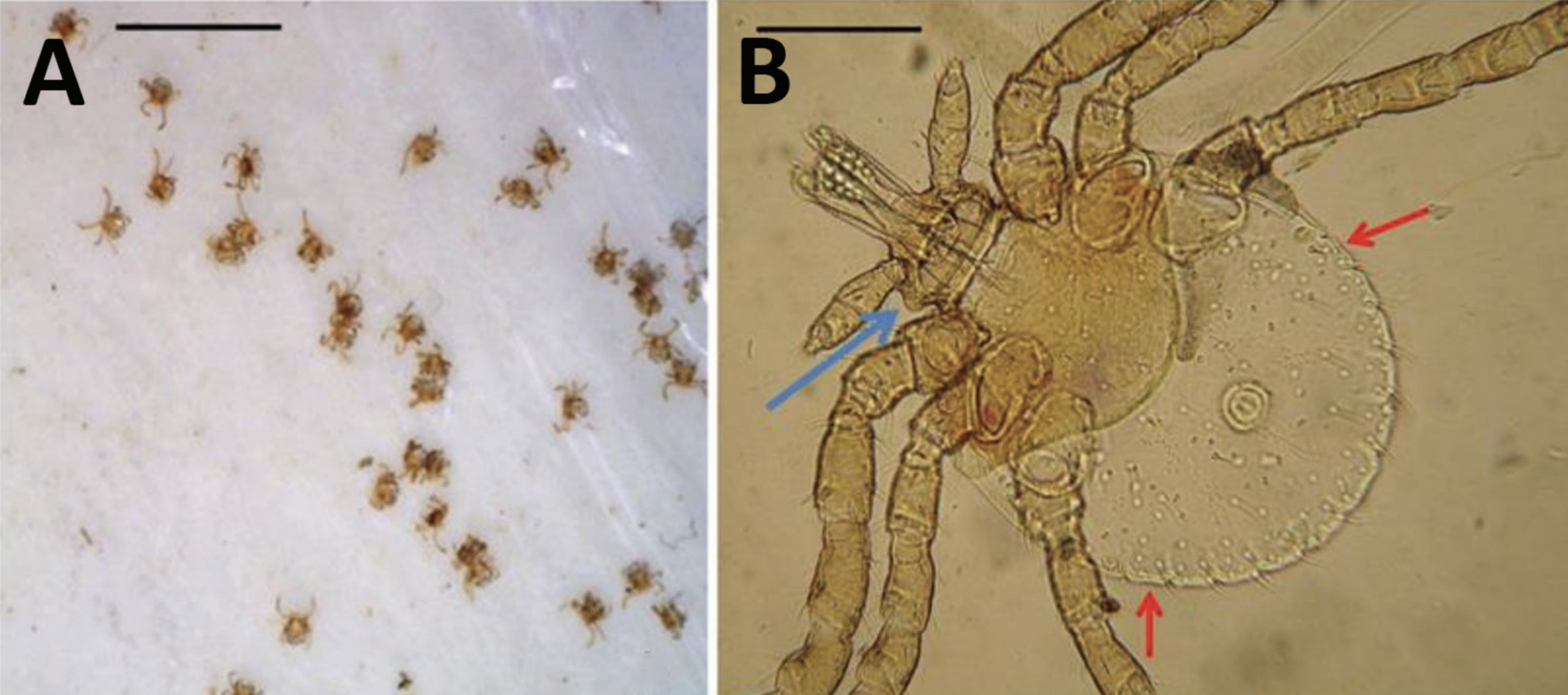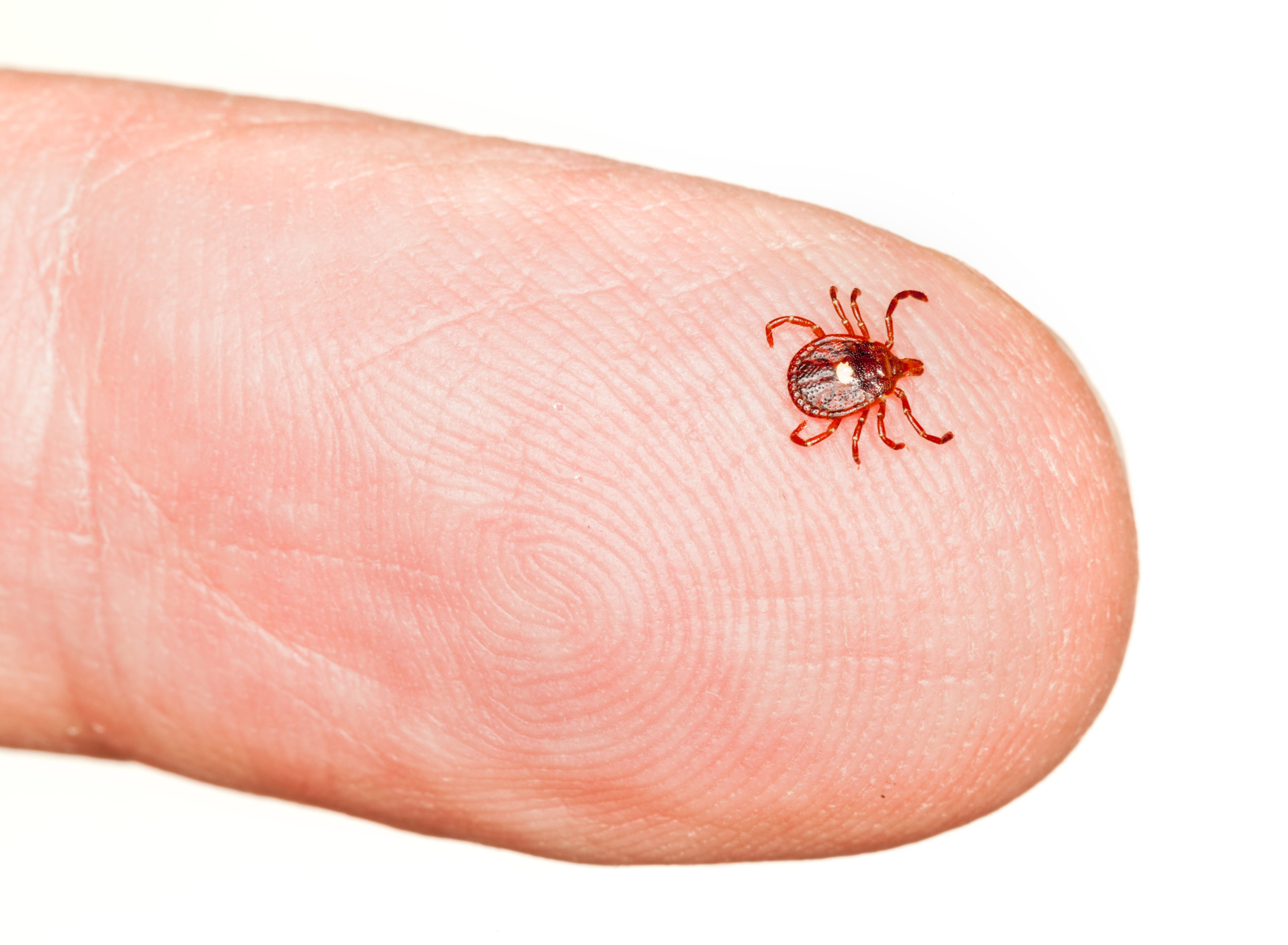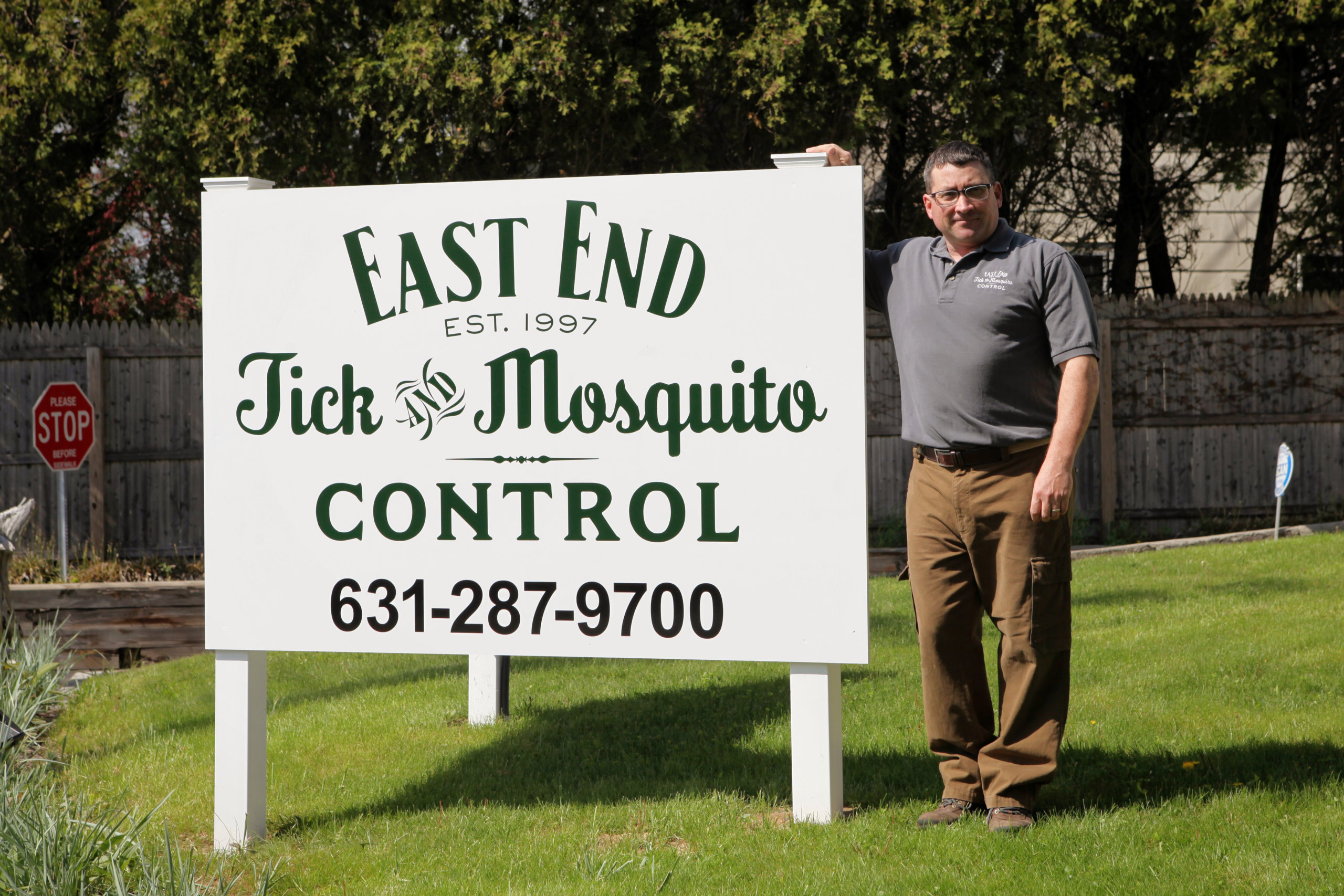Lone Star Tick Larvae Often Mistaken for 'Chiggers' on the East End

If you live on the East End of Long Island, you’ve probably been bitten by “chiggers” before, but “chiggers” have actually never been found on Long Island, and those itchy red bites are believed to be the result of larval lone star ticks—and they are currently out and extremely active!
Chiggers are actually mites found in the warmer climates of the Southern states, and are not found on Long Island, according to entomologists. Lone star tick larvae are often mistaken for chiggers due to the itchy red bites they leave behind, and their microscopic size—they’re smaller than the “star” dot found on adult lone star ticks’ backs. Luckily, the larvae don’t transmit tick-borne diseases, but can give you the meat allergy, alpha-gal syndrome (AGS), which is a potentially life-threatening allergic reaction to the alpha-gal (galactose-α-1,3-galactose) sugar molecule found in mammalian meat.

According to the Centers for Disease Control and Prevention, AGS reaction can include rash, hives, nausea or vomiting, difficulty breathing, drop in blood pressure, dizziness or faintness and severe stomach pain, usually within 3–6 hours of ingesting red meat or alpha-gal-containing products such as gelatin-coated medications. Severity of reactions differ widely among those affected, from mild to dangerous.
Brian Kelly of East End Tick & Mosquito Control says he’s seen an abundance of lone star ticks this summer and their eggs are already hatching into lone star tick larvae, which can be found throughout the East End in late summer. And, Kelly says, he’s definitely seen an upward trend this year.
In June, Southampton allergist Erin McGintee told Dan’s Papers that she’s seen a significant increase in diagnosed cases of alpha-gal over the past year. Typically, she reports diagnosing some 60 new cases each year, but that number had risen to 91 cases due to the proliferation of lone star ticks, among other factors.

Ticks remain active whenever the temperature is above freezing, and with warmer winters over the past several years, they have become a year-round problem in the Hamptons and on the North Fork. To help curb the reproduction of ticks on your property, Kelly suggests continuing preventative spraying until the end of November and then having tick-preventative granules applied throughout your property during the winter months.
East End Tick & Mosquito’s granular, winter tick control treatment, Tick Shield, provides the ultimate year-round tick protection, according to Kelly. The Tick Shield granular winter program is unique in that granules are placed in the leaf litter and shrub beds throughout your property monthly from November through March, protecting you and your family by killing any ticks that emerge on those warm winter days looking for a blood meal.
To learn more about how to protect your property and to reach East End Tick & Mosquito Control’s offices in Southampton, East Hampton and Southold, visit tickcontrol.com.



